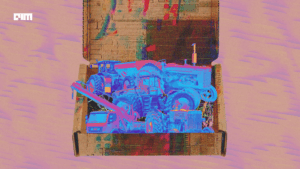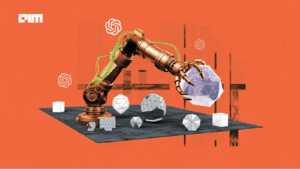When Atlassian launched Rovo in October 2023, it entered an enterprise search market that already had a breakout player: Glean. Founded by former Google executives, Glean had raised hundreds of millions of dollars, pitched itself as the connective tissue across workplace apps, and quickly won customers by promising employees a single search bar for their corporate knowledge.
But Atlassian co-founder and CEO Mike Cannon-Brookes believes the startup’s lead has already evaporated.
“I would be shocked if [Rovo] is not seeing more usage than Glean by quite a long distance,” he said during a recent interview. It was a blunt statement from the Australian billionaire, who rarely shies from a fight when it comes to Atlassian’s role in collaboration software.
From Knowledge Graph to Rovo
Cannon-Brookes’ confidence stems from Atlassian’s long-running bet on data. For more than a decade, the company has built what it calls a “teamwork graph,” a knowledge graph that maps the relationships between projects, documents, chats, and teams across its products. That graph now underpins Rovo, which Atlassian says reached 2.3 million monthly active users within nine months of launch, growing more than 50% quarter on quarter.
“We have built what we believe is the best enterprise search engine out there for the knowledge that your company has,” Cannon-Brookes said. Unlike Glean, which sells as a standalone product, Rovo is embedded across Atlassian’s suite, from Jira to Confluence to Trello. That integration, he argues, allows Rovo to surface information with context that is difficult for outsiders to replicate.
The API Crossfire
The rivalry with Glean is not just about features. It also touches the growing “API wars” among enterprise software providers. Earlier this year, Atlassian imposed stricter limits on how often external platforms could pull data from its applications, citing reliability concerns. Salesforce took a more aggressive step by cutting off Glean and others from Slack entirely, even when customers wanted the connection.
Cannon-Brookes defended Atlassian’s approach, saying its limits remain “very generous and perfectly usable.” He added that Atlassian continues to support open data flows through REST APIs, command-line tools, and a wide network of partners. But the tension underscores how incumbents are tightening control over their data just as AI startups seek to unlock it.
Beyond Search: Browsers and AI Coding
Atlassian’s push into enterprise search is part of a wider expansion of its AI strategy. Earlier this year, the company acquired The Browser Company, makers of Arc. The deal drew skepticism online with one viral post calling it “the biggest letdown for nerds this year” but Cannon-Brookes defended it as a long-term play to make the browser itself the operating system for work.
“Arc is the closest anyone has come to building a browser for knowledge workers,” he said, noting that most SaaS apps are accessed through a browser. The move positions Atlassian to influence not just how employees collaborate inside apps, but how they navigate the web of work itself.
The company has also launched Robo Dev, an AI coding assistant now integrated into Jira and Bitbucket. According to Cannon-Brookes, Robo Dev has tested ahead of rival tools on code-generation benchmarks and is being used by thousands of Atlassian customers.
SaaS Under Threat?
Cannon-Brookes’ remarks also touched on the broader anxiety running through the software industry: that AI might make SaaS irrelevant. Salesforce CEO Marc Benioff recently dismissed such concerns as “nonsense,” pointing to rapid growth in his company’s Agentforce AI platform. Cannon-Brookes echoed the skepticism, but in his own terms.
“There is nothing inherently to do with AI that should mean that software-as-a-service ceases to exist,” he said. Instead, he framed AI as an accelerant for existing platforms: “Those business processes can probably be enhanced, sped up, made more accurate, high quality with AI in various places.”
For Glean, Atlassian’s entry brings a competitor with a large installed base of customers and long-standing integrations across workplace tools. Atlassian, for its part, is positioning Rovo as an extension of its “teamwork graph,” a knowledge graph built over two decades of product usage.
Cannon-Brookes was explicit in comparing the two products. “I would be shocked if [Rovo] is not seeing more usage than Glean by quite a long distance,” he said, adding that Atlassian has “built what we believe is the best enterprise search engine out there for the knowledge that your company has.”









